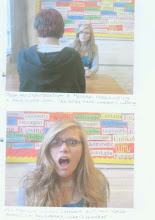To what extent is the film based on real events?
While the story does have some relationship to real events it neither pretends to be or is hitorically accurate. It does not represent any specific station that was broadcasting to Britain in 1966, but it is most likely representing the very well known station, Radio Caroline. The even film uses a ship that is similar to that used by Radio Caroline from 1983 to 1990.
The film presents a group of DJs in 1966 who are battling against the traditionalist idea held by the British government that only broadcasts 45 minutes worth of pop music a day. It gives the impression that the only type of music being played is that of the classical genre, when infact the BBC at the time was very big on broadcasting Jazz. Instead it compares the restricted and very limited non-recorded music output of the British Broadcasting Corporation's three radio services of 1966, with a very liberal station.
Not only this, but the musical output and style of presentation of the first station (Radio Caroline), was very similar to the BBC Light Programme. This programme is not mentioned in the film as it would take away the emphasise of the need for Radio Rock.
There are similarities between many of the presenters. For example Chris O'Dowd plays a DJ called Simon, the station's fictitious breakfast DJ. "The breakfast jock on Radio Caroline at the time was Tony Blackburn, so there's definitely an element of him in it," says O'Dowd of his character.
Tony Benn, the Postmaster General, responsible for the enactment of the Marine Offences Act that was responsible for the closure of the off-shore stations. Minister Dormandy is a loose parody of this, he is stereotyped as a homourless austere minister, creating binary oppostion to the DJs, getting you on the DJs sides. This character is portrayed as very conservative in the film, when infact in real life Tony Benn was part of Labour. Although the chacacter is never explicitly branded Conservative, the representation of the character in this way, fits well with the 'evil' character, typically needed in a Richard Curtis film.
By the 1960s Briton's were available to a whole host of media, yet the film depicts a collective identity of naive britons huddled around a radio to listen to Radio Rock. This gives a mythological image of 2nd world war populations, when in fact they could actually be watching TV.
We never know what really happens to the DJs in the end of the film, we just know they go off their separate ways. Yet in the real era the BBC hired most of the out of work pirate radio DJs, for example Tony Blackburn, became one of the longest serving Breakfast presenters on Radio 1 (only just over taken by Chris Moyles this year.) and Philip Birch who was Managing Director of Wonderful Radio London became the founding managing director of Piccadilly Radio.
Sunday, 1 November 2009
Subscribe to:
Post Comments (Atom)

No comments:
Post a Comment